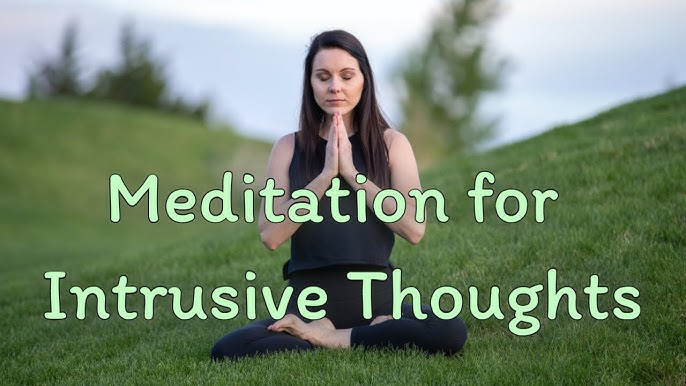Health and wellness are more than just physical fitness—they’re about achieving balance in every aspect of life. Whether you’re at home or on the go, maintaining a healthy body and mind can make all the difference in how you feel and how you live. In today’s busy world, it’s easy to forget about our well-being, but with a few simple habits and smart additions to your routine, you can create a life that’s both healthy and fulfilling. Let’s explore how you can nurture your health at home and on your travels.
The Essentials of a Healthy Lifestyle
1. Nourish Your Body with the Right Foods
Good nutrition is the foundation of good health.
At home, you have the luxury of preparing meals using fresh, whole ingredients. Focus on whole grains, lean proteins, fruits, and vegetables—these are the building blocks for a healthy diet. Healthy fats from sources like avocado, nuts, and olive oil can support brain function and keep you satisfied.



Foods to Incorporate:
- Leafy greens (spinach, kale)
- Berries (blueberries, strawberries)
- Whole grains (quinoa, oats, brown rice)
- Lean meats (chicken, turkey, tofu)
- Healthy fats (avocado, nuts, seeds)





When traveling, eating healthy can be trickier, but with a little planning, you can still make good choices. Choose fresh salads, grilled meats, and fresh fruit wherever you go. Opt for local, nutrient-dense options like Mediterranean or Asian dishes. If you’re traveling to regions with street food, choose vendors that prepare fresh meals on the spot, ensuring the food is safe and prepared in a hygienic way.
2. Stay Active Every Day
Exercise doesn’t need to be complicated to be effective.
At home, find an activity you enjoy, whether it’s yoga, strength training, or simply walking around your neighborhood. A good rule of thumb is to aim for at least 30 minutes of moderate exercise most days of the week.



Simple exercises at home:
- Bodyweight exercises (push-ups, squats, lunges)
- Yoga or Pilates
- Dancing or walking around the neighborhood



When traveling, staying active can be just as simple. Walk around the city you’re visiting, explore hiking trails, or swim if you’re near a beach. Many hotels offer gym facilities, or you can use local parks to jog or do bodyweight exercises. Even a few stretches or a yoga session in your hotel room can help keep you energized and feeling good.



3. Take Care of Your Mental Health
Physical health is important, but mental health is just as vital.
At home, practice mindfulness by taking time for self-care. Meditate, keep a journal, or simply take time to relax and breathe deeply. Doing something creative or spending time with loved ones can also boost your mental well-being.



Mental wellness tips for home:
- Practice meditation or mindfulness daily
- Take 10 minutes to journal your thoughts.
- Spend time with friends, family, or peers.



For travelers, the stress of new environments or tight schedules can take a toll on your mental health. Combat this by practicing deep breathing exercises, journaling, or staying connected with people you care about. If you’re traveling for business or leisure, take time each day to disconnect from your work or plans and enjoy the present moment.
4. Hydrate, Hydrate, Hydrate
Water is life.
At home, aim to drink at least 8 glasses of water a day. It’s crucial for digestion, energy, and even skin health. You can also hydrate with herbal teas or water infused with lemon or cucumber for a refreshing twist.



Hydration tips:
- Drink water before and after meals to stay hydrated
- Carry a water bottle throughout the day.
- Opt for herbal teas like peppermint or chamomile to relax and hydrate.e



When traveling, dehydration can sneak up on you, especially in hot climates. Always carry a refillable water bottle, and make sure to hydrate frequently. Avoid sugary drinks or excessive caffeine that can dehydrate you. Keep an eye on local water quality—if you’re unsure about tap water, stick to bottled or purified water.
5. Sleep: The Unsung Hero of Wellness
Never underestimate the power of a good night’s sleep.
At home, establish a calming bedtime routine to help you unwind. Dim the lights, avoid screen time, and make your bedroom a peaceful retreat. Sleep is when your body recovers, so don’t skimp on it!



Tips for better sleep at home:
- Set a consistent bedtime and wake-up time
- Avoid screens an hour before bedtime.
- Keep your bedroom cool and quiet for optimal rest.



When you’re on the road, it’s easy to get caught up in late-night sightseeing or adjusting to time zones. But try to keep your sleep routine consistent, even if it’s just for a few hours. If you’re struggling with jet lag, melatonin supplements can help reset your internal clock.

Supplements to Enhance Your Wellness Routine
While a balanced diet and exercise are the foundation, supplements can support your overall health, especially when you’re traveling or on-the-go. Here are some useful supplements to consider:



- Multivitamins: A good multivitamin ensures you’re covering any nutritional gaps in your diet.
- Vitamin D: Often lacking in our diets, especially in colder months or when traveling to places with limited sunlight, Vitamin D supports bone health, immunity, and mood.
- Probiotics: These help balance gut health, which can be affected by travel or changes in diet. Probiotics support digestion and immune health.
- Magnesium: For stress relief, muscle relaxation, and better sleep, magnesium is a great option, especially if you have trouble winding down at night.
- Omega-3s: Found in fish oil or flaxseed supplements, omega-3 fatty acids are beneficial for brain health, heart health, and reducing inflammation.






Always consult with a healthcare provider before adding new supplements to your routine, especially if you have any underlying health conditions.
Cultural Wellness Tips for Travelers
When traveling, immerse yourself in local wellness practices that can complement your routine and add a cultural touch to your health journey. Every culture has its unique methods for promoting wellness:



- Ayurveda (India): For boosting immunity and stress management, try Ayurvedic teas or treatments like turmeric milk or ashwagandha.
- Japanese Wellness (Japan): Onsen (hot spring baths) are a popular wellness practice in Japan, promoting relaxation and muscle recovery.
- Mediterranean Diet (Greece, Italy): Incorporate the Mediterranean diet into your meals, which focuses on fresh fruits, vegetables, fish, and healthy fats, known for their heart health benefits.
- Nordic Wellness (Scandinavia): The practice of sauna bathing helps with detoxification, relaxation, and skin health.

Exploring these cultural practices can be a refreshing addition to your health routine and offer new ways to relax and recharge.



Why It Works
This holistic approach to health and wellness works because it addresses the mind, body, and spirit. By integrating small but meaningful habits into your daily life—whether at home or on the go—you create a foundation of wellness that supports all aspects of your life. You’ll feel more energized, focused, and ready to take on whatever comes your way. Plus, these habits are flexible enough to fit into any lifestyle, no matter how busy you are.

Conclusion
Health and wellness are not about perfection—they’re about balance. By eating well, staying active, caring for your mental health, hydrating, and prioritizing sleep, you’ll find yourself feeling healthier and more centered, whether you’re at home or traveling the world. Add supplements to support your routine, try local wellness practices, and stay mindful of your health—your future self will thank you!

